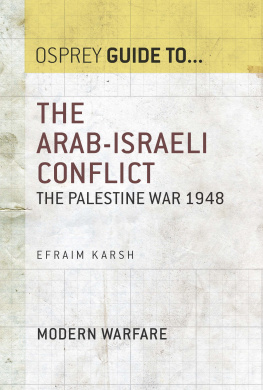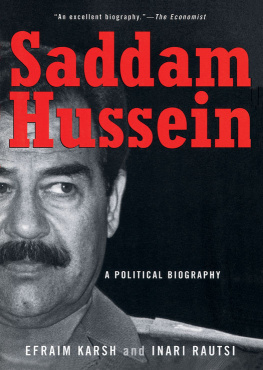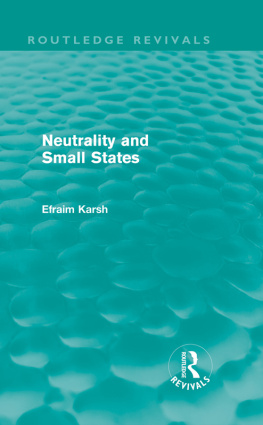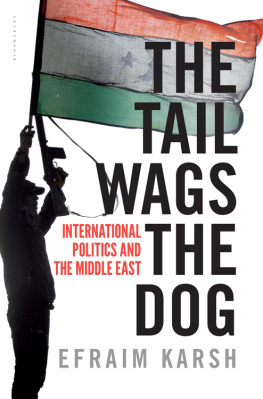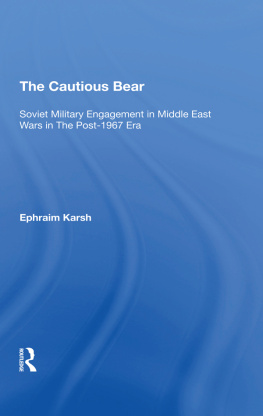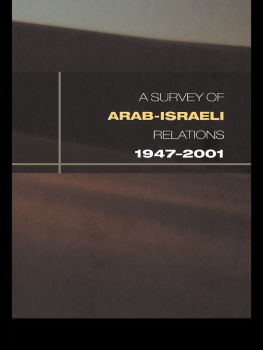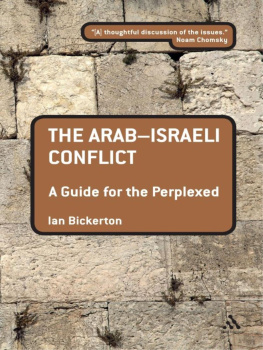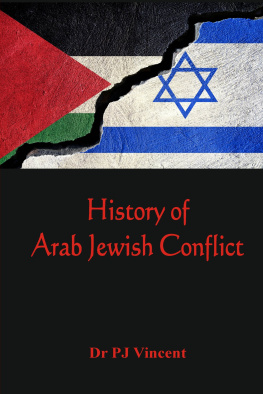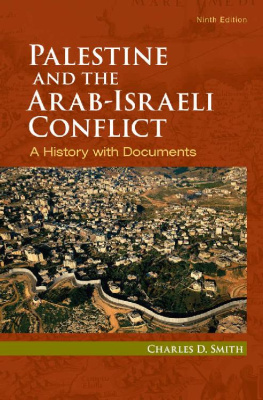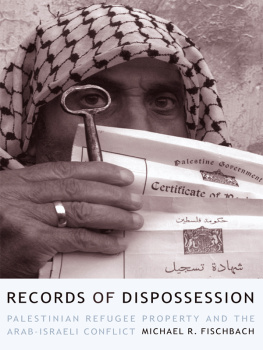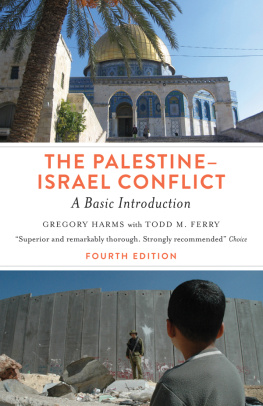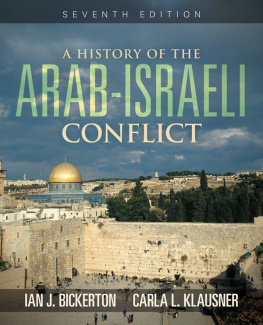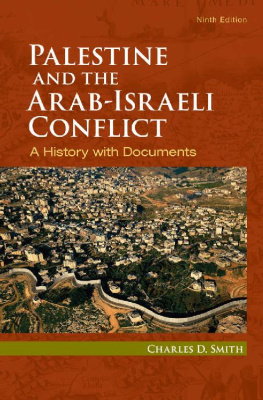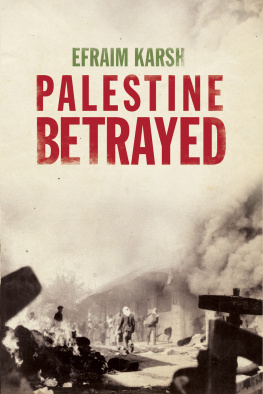Guide To
The Arab-Israeli Conflict
The Palestine War 1948
Efraim Karsh

Contents
Introduction
On 29 November 1947, the United Nations General Assembly passed a resolution calling for the partition of Palestine into two independent states one Jewish, the other Arab linked in an economic union. The City of Jerusalem was to be placed under an international rgime, with its residents given the right to citizenship in either the Jewish or the Arab states. Thirty-three UN members supported the resolution, 13 voted against and 10 abstained, including Great Britain, which had ruled Palestine since the early 1920s under a League of Nations Mandate.
For Jews all over the world this was the fulfilment of a millenarian yearning for national rebirth in the ancestral homeland. For Arabs it was an unmitigated disaster, an act of betrayal by the international community that surrendered an integral part of the Arab world to foreign invaders. In Tel-Aviv, crowds were dancing in the streets. In the Arab capitals there were violent demonstrations. We are solidly and permanently determined to fight to the last man against the existence in our country of any Jewish state, no matter how small it is, Jamal al-Husseini, Vice-President of the Arab Higher Committee (AHC), the effective government of the Palestinian Arabs, told the General Assembly as it was about to cast its vote. If such a state is to be established, it can only be established over our dead bodies. And an AHC circular was even more outspoken. The Arabs have taken into their own hands the final solution of the Jewish problem, it read. The problem will be solved only in blood and fire. The Jews will soon be driven out.
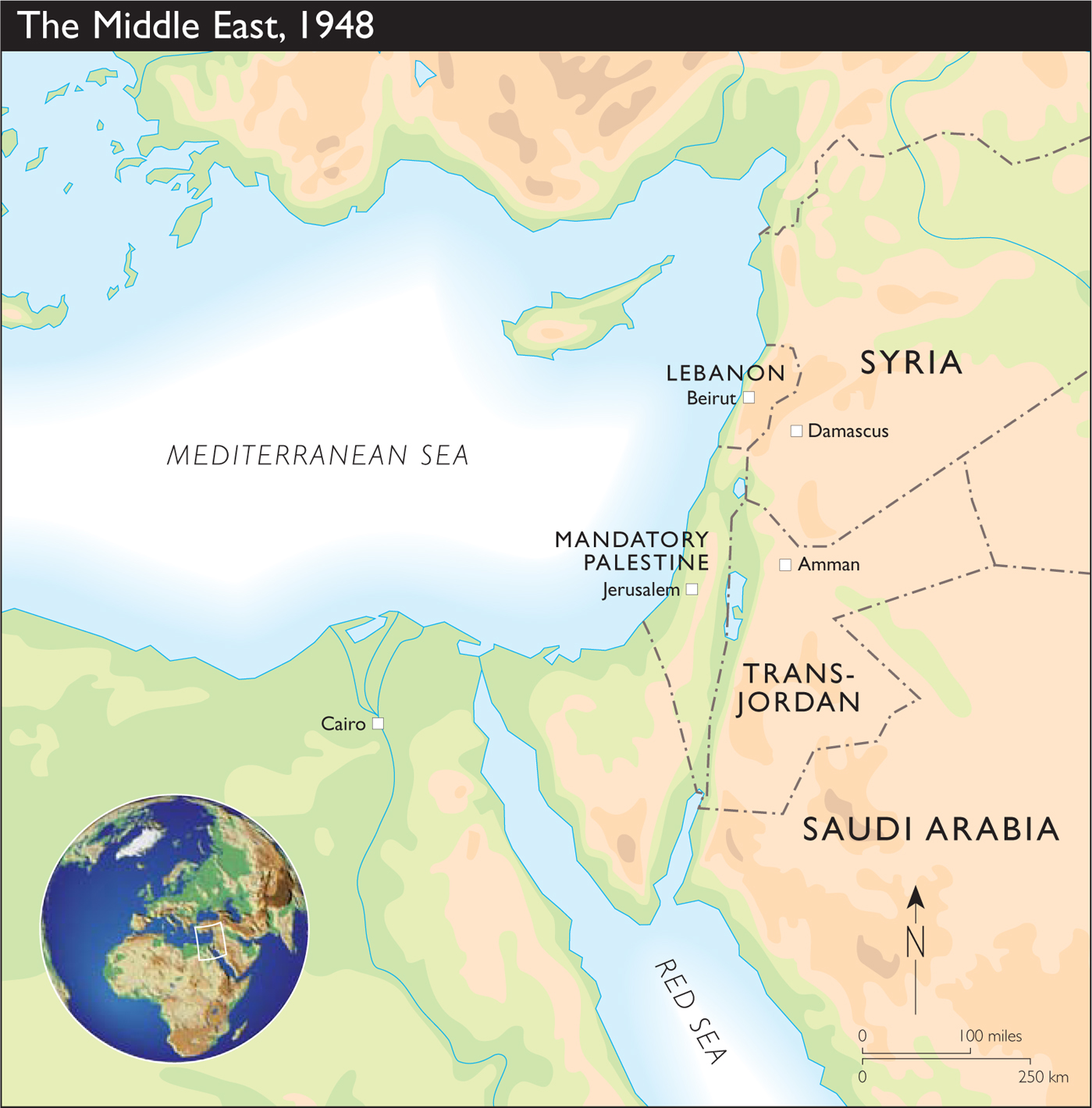
Thus began the Palestine War, probably the most important Middle-Eastern armed confrontation since the destruction of the Ottoman Empire and the creation of a new regional order on its ruins in the wake of the First World War. It was to be divided into two distinct phases. The first began on 30 November 1947, the day after the adoption of the Partition Resolution, and ended on 14 May 1948 with the termination of the British Mandate. It was essentially a civil war, conducted under the watchful eye and occasional intervention of the British Mandatory authorities, in which the Palestinian Arab community, assisted by a sizeable pan-Arab irregular force, sought to prevent its Jewish counterpart from laying the foundation of statehood in line with the UN resolution. The second phase started on the night of 1415 May 1948, a few hours after the proclamation of the State of Israel, and involved a concerted attack by the armed forces of Egypt, Syria, Iraq, Transjordan, Lebanon, as well as a Saudi contingent, on the nascent Jewish state. It ended on 20 July 1949 with the signing of the last of the armistice agreements between Israel and its Arab neighbours.
By the time the fighting was over, Israel, albeit at the exorbitant human cost of 1 per cent of its population, had survived the Arab attempt to destroy it at birth and had asserted its control over wider territories than those assigned to it by the UN Partition Resolution. The Palestinian Arab community was profoundly shattered, with about half of its population becoming refugees in other parts of Palestine and the neighbouring Arab states. The political implications of what would come to be known in Arab political discourse as al-Nakba, the catastrophe, would reverberate throughout the Middle East for decades. Already before the end of hostilities the president of Syria was overthrown by a military coup, while the king of Egypt followed suit in the summer of 1952. Within two years of the end of the Palestine War, King Abdallah of Jordan, the foremost Arab combatant during the conflict, was assassinated, as were the prime ministers of Egypt and Lebanon. For decades inter-Arab politics would be dominated by the problem of Palestine as the Arab states and the Palestinians sought to undo the consequences of the Palestine War and bring about Israels demise by military, political and economic means. Palestine and the self-respect of the Arabs must be recovered, the prominent Palestinian leader Musa Alami wrote in 1949. Without Palestine there is no life for them.
Chronology
| 1917 | 2 November British Government issues the Balfour Declaration supporting the establishment in Palestine of a national home for the Jewish people |
| 1920 | March Britain awarded the Mandate for Palestine at the San Remo conference |
| April Arab riots in Jerusalem. Five Jews killed and 211 wounded |
| 1921 | March British Government excludes Transjordan from the prospective Jewish national home (though not from the Palestine Mandate) |
| April Hajj Amin al-Husseini appointed Mufti of Jerusalem |
| May Arab riots in Palestine. Ninety Jews killed and hundreds wounded |
| 1922 | June A British White Paper depreciates the nature of the prospective national Jewish home; limits Jewish immigration to the economic absorption capacity of the country |
| 1929 | August Arab rioters kill 133 Jews and wound hundreds more |
| 1930 | October A White Paper recommends harsh restrictions on Jewish immigration and purchase of land |
| 1936 | April A 10-member Arab Higher Committee established as the effective leadership of the Palestinian Arabs; a general Arab uprising begins |
| October Uprising temporarily suspended at the request of Arab leaders |
| 1937 | July A Royal Commission of Inquiry, headed by Lord Peel, recommends the termination of the Mandate and the partition of Palestine into two states: an Arab state, united with Transjordan, in some 85 per cent of this territory, and a Jewish state in the |
| rest. Jerusalem, Bethlehem, and a corridor leading them to the Mediterranean Sea to remain a British Mandatory zone |
| 1938 | November Woodhead Royal Commission: recommends the shelving of the Peel Partition Plan |
| 1939 | May A White Paper restricts Jewish immigration to no more than 15,000 per year during the next five-year period; after that it would occur only with Arab consent. Purchase of land by Jews is prohibited in some areas, restricted in others |
| 1942 | May A Zionist conference at the Biltmore Hotel, New York, demands that Palestine be established as a Jewish Commonwealth integrated in the structure of the new democratic world |
| 1946 | 1 May An Anglo-American Commission of Inquiry recommends the opening of Palestine to 100,000 Jewish refugees. Recommendation rejected by British Foreign Secretary Ernest Bevin |
| June A pan-Arab summit in Bludan (Syria) adopts a series of measures to prevent the creation of a Jewish state |
| 1947 | March Britain refers the Palestine problem to the UN |
| 31 August UN Special Committee on Palestine (UNSCOP) recommends the earliest possible termination of the British Mandate. A majority report suggests the partition of Palestine into an Arab state, a Jewish state, and an internationalised city of Jerusalem all linked in an economic union. A minority report recommends an independent federal state |
| 1619 September Pan-Arab summit in Sofar (Lebanon). Urges the Arab states to open their doors to Palestinian children, women, and the elderly and fend for them, should the developments in Palestine so require |
Next page
